

Angola Joins Long List of Oil Nations in Ditching Dollar Peg. Updated on Angola is poised to become the latest emerging nation to abandon its currency peg as it seeks to rescue an economy still reeling from the oil-price crash four years ago.
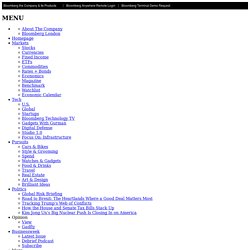
The southern African nation, an OPEC member, said this week it would let the kwanza trade within a new band. The rate at which it’s been fixed against the dollar since April 2016 “does not reflect the truth,” according to Jose Massano, who became central bank governor in late October. It joins a long list of commodity exporters -- from Russia to Egypt, Kazakhstan, Nigeria and Uzbekistan -- that have floated or devalued currencies in a bid to end crippling shortages of foreign exchange and revive economic growth. “It was a long time coming,” said Kaan Nazli, a strategist at Neuberger Berman Europe Ltd. in The Hague, which manages almost $300 billion, including Angolan Eurobonds.
Ongoing restructuring programme at Angola’s Sonangol makes substantial savings. March 9th, 2017 Home Angola The ongoing restructuring programme at Angolan state oil company Sonangol has reduced the company’s logistics costs by half, the chair of the Board of Directors said in Houston, Texas on Wednesday.
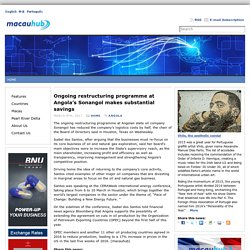
Isabel dos Santos, after arguing that the businesses must re-focus on its core business of oil and natural gas exploration, said her board’s main objectives were to increase the State’s supervisory reach, as the main shareholder, increasing profit and efficiency as well as transparency, improving management and strengthening Angola’s competitive position. Driving home the idea of returning to the company’s core activity, Santos cited examples of other major oil companies that are divesting in marginal areas to focus on the oil and natural gas business.
OPEC members and another 11 other oil producing countries agreed in 2016 to reduce production, leading to a 17% increase in prices in the US in the last five weeks of 2016. Related News: Iraq asks Angola firm to resume work at retaken oil fields. Baghdad (AFP) - Iraq's oil minister called Tuesday for Angolan energy firm Sonangol to resume work at fields south of Mosul where the Islamic State group had set wells alight, sparking months-long infernos.
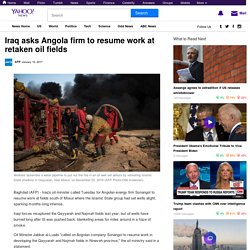
Iraqi forces recaptured the Qayyarah and Najmah fields last year, but oil wells have burned long after IS was pushed back, blanketing areas for miles around in a haze of smoke. Oil Minister Jabbar al-Luaibi "called on Angolan company Sonangol to resume work in developing the Qayyarah and Najmah fields in Nineveh province," the oil ministry said in a statement.
Angolan president sacks finance minister. LUANDA: Angolan President Jose Eduardo dos Santos Monday sacked his finance minister Armando Manuel, the presidency announced, as the country battles an economic crisis caused by sinking oil prices.
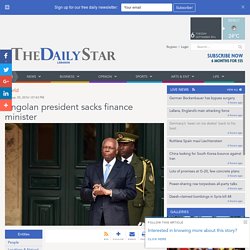
No reason was given for the dismissal of the 44-year-old London-educated minister who has held the post for three years. He has been replaced by Augusto Archer de Sousa Mangueira, 53, who was chairman of the country's Capital Markets Commission prior to the new appointment. The new minister takes over of struggling economy which has slumped mainly due to the steep drop in crude oil prices. The country's currency, the kwanza, has lost more than 60 percent of its value against the dollar since the start of last year. GRANDE REPORTAGEM SOBRE LINHA FÉRREA CENTRO-NORTE DE MOÇAMBIQUE. Uk.businessinsider. Cabinda: The Tiny Oil-Rich Corner of Africa Everyone's Fighting Over. Getty/Lonely Planet Images.
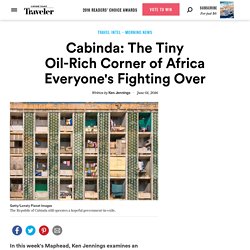
Angola's census shows population rises to 26 million. Angola Web News 14/01/2016. Angola Magazine - Zaire: Desenvolvimento do município do Soyo. Huambo: Desenvolvimento da Caála. Angola Magazine - Primeiro dia de 2016. Angola: EPAL to Install Over 800,000 Prepaid Water Meters in Luanda. Angola Magazine - Transformação da cidade capital. Angolan capital remains world's most expensive city for expats. So Mercer, the reputed global research body, released its 2015 Cost of Living Rankings which names the most (and least) expensive cities in the world for “expatriate employees”.
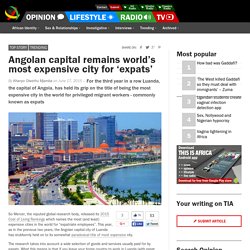
This year, as in the previous two years, the Angolan capital city of Luanda has stubbornly held on to its somewhat paradoxical title of most expensive city. The research takes into account a wide selection of goods and services usually paid for by expats. What this means is that if you leave your home country to work in Luanda (with expat privileges – not migrant worker honours), you will most likely, break the bank to get access to decent housing, security, transport, burgers and jeans.
It’s almost difficult to understand but it’s true. According to the findings, a cup of coffee would set you back around £3 ($4.80) – which is pretty tame, depending on where you decide to get your caffeine fix. Untitled. Angola at Peace Is Sub-Saharan Africa’s Top Defense Spender. Angola spent more on its military last year than any other sub-Saharan African nation even though it’s been at peace since a civil war ended more than a decade ago.
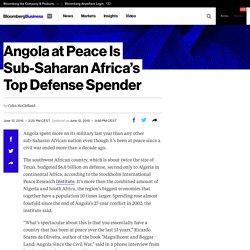
The southwest African country, which is about twice the size of Texas, budgeted $6.8 billion on defense, second only to Algeria in continental Africa, according to the Stockholm International Peace Research Institute. It’s more than the combined amount of Nigeria and South Africa, the region’s biggest economies that together have a population 10 times larger. Spending rose almost fourfold since the end of Angola’s 27-year conflict in 2002, the institute said.
“What’s spectacular about this is that you essentially have a country that has been at peace over the last 13 years,” Ricardo Soares de Oliveira, author of the book “Magnificent and Beggar Land: Angola Since the Civil War,” said in a phone interview from London. “Just the numbers tell a crazy story.” Defense Budget Armored Vehicles Regional Power. Angola's Geographic Challenge. The provinces spur economic diversification. Each province has its own strategy for improving the lives of its inhabitants, which ultimately in conjunction will lead to national growth.
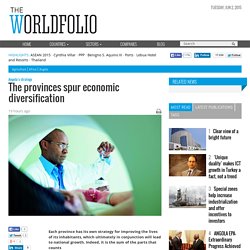
Indeed, it is the sum of the parts that counts Angola’s rich natural resources are rightly renowned around the world, specifically when it comes to its mammoth oil reserves. Yet while the country’s famous “black gold” is largely found in fields out at sea, much less is universally known about the massive natural wealth held by its plentiful land pastures. Diversifying from oil: Angolan sovereign wealth fund eyes hotel investments. The Angolan sovereign wealth fund, Fundo Soberano de Angola (FSDEA), was officially launched in October 2012 with US$5bn in initial capital, and reportedly receives a $3.5bn injection a year from Angolan oil proceeds.
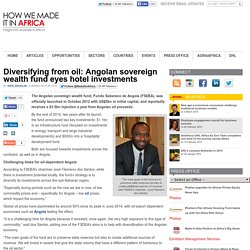
“The main goals of the fund are to preserve state reserves but also to create additional sources of revenue,” said FSDEA’s chairman, José Filomeno dos Santos. By the end of 2014, two years after its launch, the fund announced two key investments: $1.1bn in an infrastructure fund (focused on investments in energy, transport and large industrial developments) and $500m into a ‘hospitality’ development fund. Angola - U.S. Secretary of State John Kerry. The U.S. government and American companies are eager to make up the ground lost to China in Africa during recent years.
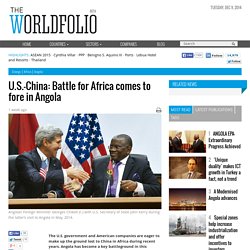
Angola has become a key battleground in this struggle for economic influence on the continent. Given China’s insatiable thirst for Africa’s natural resources over the past decade, it came as no surprise in 2009 when the Asian giant overtook the United States as Africa’s leading trading partner. Angola Monitor - Investment in Angola has exceeded 4 billion dollars. Private investment contracted with the National Agency for Private Investment (ANIP, in Portuguese) of Angola as already surpassed the target of 4 billion dollars, which had been set by the Government. Maria Luísa Abrantes, president of ANIP, believes that the amount represents a satisfactory value, "given that the country is in a recovery phase and construction of new infrastructure".
The official also added that the government institution does not focus only on large investments, but also promotes projects of micro, small and medium enterprises that create jobs for the entire population. Last Thursday, ANIP signed 15 new investment contracts with Angolan and foreign companies in the agro-industrial, services, construction and manufacturing sectors. These new contracts include investments valued at 112.5 million dollars.
Source: Macauhub. Angola seeks bigger role as regional peacemaker. LUANDA — A decade ago, Angola was emerging from a civil war that laid waste to much of the country. Now, fuelled by Africa’s second-biggest oil industry, it aims to become a regional power, with a seat on the United Nations (UN) Security Council and President José Eduardo dos Santos’s government helping to broker disarmament talks in Democratic Republic of Congo. Former colonial ruler Portugal, as well as Spain and China are among countries that added $2.2bn in investment by September 30 to boost agricultural output and help rebuild after the 27-year civil war that ended in 2002. The UN says the nation of 24-million people will reach middle-income status by 2020 due to oil revenue from companies such as BP, ConocoPhillips and Repsol, which are betting on vast new oil deposits beneath the Atlantic Ocean.
"We plan to use our war experience to promote peace (in Africa) and other parts of the globe," Foreign Minister Georges Chikoti said last month in Luanda, the capital. 36% of Angolans live below poverty line - By Nirit Ben-Ari Angola has one of the world’s fastest growing economies. Its economy grew by 5.1% in 2013. As major public infrastructure investments in energy and transport kick in, its growth is projected to reach 7.9% in 2014 and 8.8% in 2015. Yet, the United Nations Development Programme (UNDP) reports that around 36% of Angolans live below the poverty line and one in every four people is unemployed. Angola hikes fuel prices by 25% - International. Johannesburg - Angola, Africa's second largest oil producer, has increased fuel prices by an average of 25 percent to reduce subsidies and boost government spending, the finance ministry has said.
The ministry said in a statement on its website this week that the price of petrol would rise to 75 kwanza (R8.57), while diesel would go up by the same margin to 50 kwanza. “When these fixed prices are adjusted, the government creates fiscal space by reducing subsidies, allowing the opportunity for other spending on social and economic sectors,” it said. Fuel increases are the latest indication that Angola's budget is feeling the strain from disappointing oil output this year, said Jacques Nel, an economist at NKC Independent Economists. “While an increase in fuel prices will have inflationary effects, the overall impact of a more favourable fiscal position with spending directed towards projects with medium term gains should benefit the economy,” Nel told Reuters.
Related Stories. Angola is the only country in Africa that makes more foreign investments than it receives. The large size of Angolan investments abroad, namely in Portugal, is already reflected in the country’s statistics, which showed that in 2013 Angola was the only country in Africa that made more investments than those it received from abroad. Figures from the United Nations Conference on Trade and Development (UNCTAD), cited by financial news agency Bloomberg, put Angola, Mozambique and Sao Tome and Principe amongst the African countries that attracted most foreign investment last year.
In fact Mozambique was the Portuguese-speaking country that received most investment, considering the country’s population – the equivalent of US$248 per capita, only behind Gabon (US$550), the Republic of Congo (US$496), Namibia (US$321), Mauritania (US$320) and Liberia (US$268). Most of the analyses available point to a continued high inflow of foreign investments to Mozambique, given the size of natural gas projects and related infrastructure support, as well as other ongoing mining projects. Angola: Towards Supremacy In Sub-Saharan Africa? - Analysis - Eurasia Review. Chinese company restores Benguela railway.
Angola.pdf. Diapositivo 1 - sessao_6.pdf. In 2017, Angola will put its satellite into orbit. Wednesday, 11 June 2014 14:36. Angola Investe aprova 252 projectos para financiamento - Portal de Angola. Portugal indebted to Angola after economic reversal of fortune. Angola: bright new Luanda - Revisited. Angola Invests away from Oil. ANGOLA IS RISING. Over 9,000 companies certified in Angola in 2012 and 2013. April 28th, 2014 News. ZREport_Angola-Property-Market-2013-EN.pdf. Angolan government to implement master plan for the road sector. Pólo Industrial do Lucala vai impulsionar industrialização da província - ANGONOTÍCIAS. A criação do Pólo de Desenvolvimento industrial de Lucala, no Kwanza Norte, cujos trabalhos de infraestruturação decorrem satisfatoriamente, sob responsabilidade do Ministério da Indústria, vai impulsionar o processo de industrialização da província, disse hoje, em Ndalatando, o director provincial da Indústria, Geologia e Minas, Emanuel de Sousa.
Em declarações à Angop, o responsável afirmou que foram já infraestruturados cerca de 50 hectares como parte dos 830 que integrarão o Pólo Industrial do Lucala que está a ser edificado no município, a 36 quilómetros de Ndalatando, sede da província. Angolan Second City Huambo Starts to Rise From Ashes of War (1) Number of millionaires in Angola up 68% from 2007 to 2013. Angola plans laying undersea cable to Brazil. Angola Magazine - Reabilitações na cidade do Mbanza Kongo (Zaire) O Mundo Segundo os Brasileiros. Angola Magazine - Angola está prevista até 2018 a ser um país com rendimento médio. CABINDA EN TRANSFORMATION.mp4. Africa's richest woman goes into retail. Untitled. Economics - Government to privatise inoperative firms.
4013-developing-angolas-infrastructure.pdf. Invest Africa Episode 19: Angola.